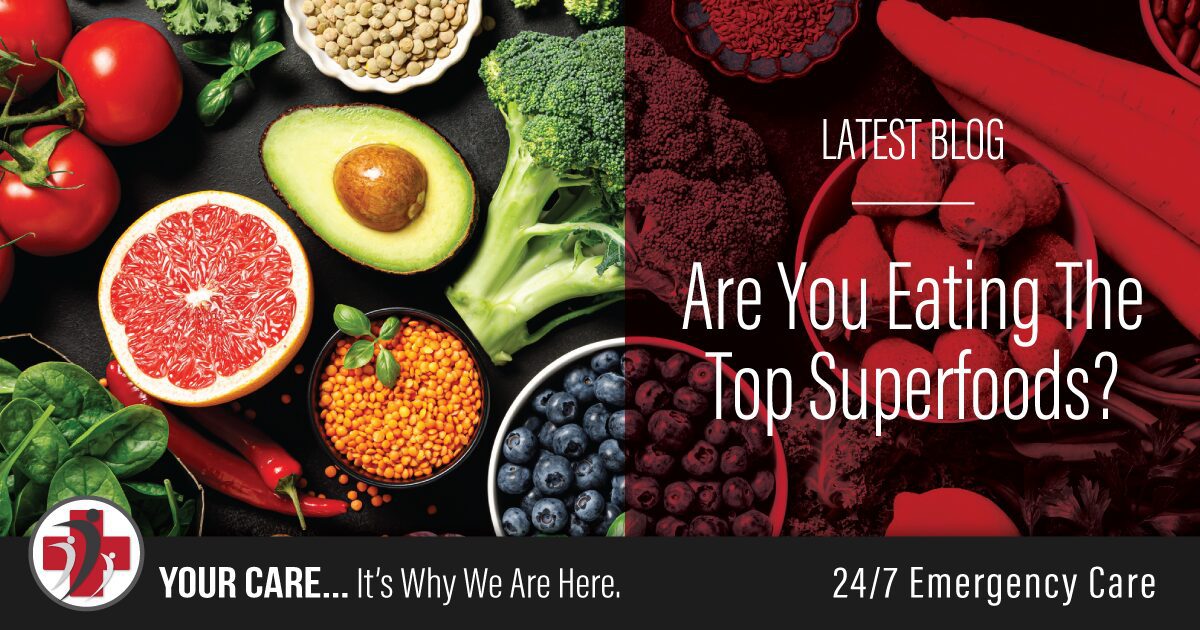Are You Eating The Top Superfoods?

With March being National Nutrition Month, we wanted to talk about superfoods; what they are, why they’re important, and which ones you should be incorporating into your diet. “Superfoods” is a term advertisers love to throw around when trying to convince you to buy their product, but what are superfoods, really?
What does “superfood” actually mean?
The term materialized in the 1990s remains a common word today. A food can be considered “super” if it has a high number of macro- or micro-nutrients, and also if it’s rich in antioxidants, minerals, vitamins, and/or protein, and if its nutritional value is inherent (as in, nothing needs to be added to it for it to be very nutritious). Many superfoods are plant-based, and most offer high nutritional value with relatively low calories.
Are they worth the hype?
Many superfoods are very high in antioxidants, and that alone is significant. Antioxidants can help neutralize (or reduce the damaging impact of) free radicals. Free radicals are “unstable” molecules that can damage cells, increasing the risk of cancer or other illnesses in the body.
Superfoods can help reduce inflammation, help prevent heart disease, decrease inflammation, and improve immunity. They’re known to support higher energy levels and help people maintain a healthy weight.
At Fountain Hills Medical Center, we often recommend that our patients increase their superfood consumption for a wide array of issues including fatigue, high cholesterol, weight management, or issues concerning emotional health and wellness. While we do NOT recommend that superfoods replace or delay seeking medical treatment or the taking of medication, we do recognize that nutrient-dense food can be its own brand of medicine.
So, in short? YES, they’re worth the hype.
So what should you be eating?
Incorporating superfoods into your diet is made easier by the vast and varied list of foods that make the cut.
There are those you probably know about, including berries, kale, spinach, avocados. Then there are those that might surprise you a little, including sweet potatoes, nuts, garlic and green tea. And THEN, there are a few that will likely surprise you a lot, including eggs, dandelion greens, yogurt, and dark chocolate.
The takeaway from this discussion of superfoods is that replacing some less-healthy foods in your diet with foods in the superfood category can help your overall health to improve. And while some diet improvement is better than no change at all, it’s important to aim for a large variety of superfoods so you can enjoy an array of nutritional benefits from each food.
What superfoods can NOT do includes “undo” a bad diet, replace medical treatment or medication, cure diseases, or prevent disease on their own.
For dietary advice in Fountain Hills, our top-rated medical team is always here to help you adopt a wellness plan that’s right for you. With small, measurable dietary changes that are enacted on a regular basis, you’ll soon be on your way to better health; one superfood at a time.




